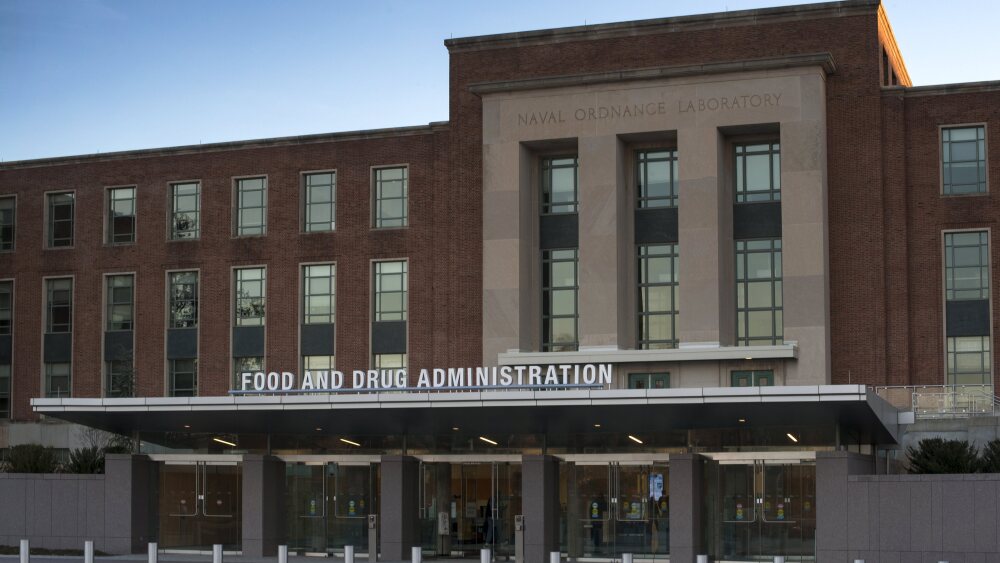"We look forward to working with the FDA to potentially provide people with this devastating disease the first new treatment in more than a decade," said David Schenkein, M.D., senior vice president, Clinical Hematology and Oncology, Genentech. "A global Phase III trial evaluating Avastin in people with newly diagnosed glioblastoma will be initiated later this year."
About Glioblastoma
Glioblastoma affects approximately 10,000 people per year in the United States. Following initial treatment, glioblastoma tumors nearly always return and there are currently no widely accepted non-surgical medicines when these relapses occur. According to historical estimates, fewer than 10 percent of patients respond to treatment and approximately 10 to 20 percent will live six months without their disease getting worse. Glioblastoma tumors invade brain tissue and can impact physical activities and mental abilities.
Avastin Application for Accelerated Approval
An accelerated approval of Avastin for previously treated glioblastoma would provide doctors with safety and efficacy information and give people with this rapidly progressing brain cancer a new option. The application is based on positive, independently reviewed data from the non-comparative Phase II BRAIN study (AVF3708g) of 167 patients. In the 85 patients treated with Avastin alone, the trial showed:
-- In 28 percent, tumors shrank to at least half their original size;
-- In those whose tumors shrank, half experienced a response of at least 5.6 months;
-- 43 percent lived six months without their disease getting worse; and,
-- Half lived at least 9.3 months after starting treatment with Avastin and 38 percent survived longer than one year.
No new safety signals were observed in the trial and the safety profile was consistent with Avastin experience in other tumor types. The most common severe (Grade 3 or greater) adverse events in patients treated with Avastin alone were high blood pressure (8 percent) and seizures (6 percent). There were two deaths associated with adverse events in the group of patients treated with Avastin alone.
AVF3708g was an open-label, multicenter study that evaluated Avastin alone or in combination with irinotecan in previously treated glioblastoma. All patients had previously progressed on prior temozolomide and radiation. The two primary endpoints of the study were objective response rate and six-month progression-free survival (PFS: 10.83, n.a., n.a.%). Response rate was defined as a decrease in tumor size by at least 50 percent on two consecutive independent assessments at least four weeks apart. Six-month PFS was defined as the number of patients who lived six months without their disease getting worse. Secondary endpoints included overall survival and safety.
About Avastin
Avastin is a biologic antibody designed to specifically inhibit the vascular endothelial growth factor (VEGF: undefined, undefined, undefined%) protein that plays an important role in the development and maintenance of blood vessels, a process known as angiogenesis. Glioblastomas express high levels of VEGF and develop an extensive network of tumor blood vessels. VEGF is a potent activator of angiogenesis throughout the lifecycle of a tumor and is thought to be critical to a tumor's ability to grow and spread in the body (metastasize).
Avastin is approved for the first- and second-line treatment of metastatic colorectal cancer in combination with intravenous 5-FU-based chemotherapy and for the first-line treatment of unresectable, locally advanced, recurrent or metastatic non-squamous, non-small cell lung cancer (NSCLC: undefined, undefined, undefined%) in combination with carboplatin and paclitaxel.
Avastin Safety
Patients treated with targeted therapies, including Avastin, may experience side effects. In clinical trials, some patients treated with Avastin experienced serious side effects, including:
Gastrointestinal (GI: undefined, undefined, undefined%) perforation:
Treatment with Avastin can result in the development of a potentially serious side effect called GI perforation, which is the development of a hole in the stomach, small intestine, or large intestine. In clinical trials, these events occurred throughout the course of treatment, and in some cases resulted in fatality. Avastin therapy should be permanently stopped in people with GI perforation.
Wound healing problems:
Treatment with Avastin can lead to slow or incomplete wound healing (for example, when a surgical incision has trouble healing or staying closed). In some cases, this event resulted in fatality. Avastin therapy should be permanently stopped in patients with wound healing problems that require medical treatment. The appropriate waiting time between stopping treatment with Avastin and having surgery has not been determined.
Severe bleeding:
Some people receiving Avastin with chemotherapy for lung cancer experienced hemoptysis (coughing up blood). In some cases, this event resulted in fatality. People with recent hemoptysis should not receive Avastin.
In clinical trials, additional serious side effects seen across different cancer types included a higher risk of stroke or heart problems (blood clots and congestive heart failure) in some cases resulting in fatality, compared with people taking chemotherapy alone. Some people experienced a condition that causes reduced white blood cell counts that may increase the chance of infection (neutropenia). Some people experienced the formation of an abnormal passage from parts of the body to another part (non-GI fistula formation). Severe high blood pressure, kidney problems, and nervous system and vision disturbances (reversible posterior leukoencephalopathy syndrome) were also experienced by some people taking Avastin with chemotherapy. Patients receiving Avastin should have their blood pressure monitored every two to three weeks.
Avastin may cause problems getting pregnant. People who are pregnant or thinking of becoming pregnant should talk with their doctor about the potential risks of loss of pregnancy or the potential risk of Avastin to the fetus. Nursing mothers should not breast-feed while receiving Avastin, or for a short period of time after treatment is finished.
For full Prescribing Information and Boxed WARNINGS on Avastin, visit http://www.avastin.com.
About Genentech
Founded more than 30 years ago, Genentech is a leading biotechnology company that discovers, develops, manufactures and commercializes medicines to treat patients with serious or life-threatening medical conditions. The company, a wholly-owned member of the Roche Group, has headquarters in South San Francisco, California. For additional information about the company, please visit http://www.gene.com.
SOURCE: Genentech, Inc.
Genentech, Inc. Charlotte Arnold, 650-467-6800 (Media) Kathee Littrell, 650-225-1034 (Investor) Kristin Reed, 650-467-9831 (Advocacy)




